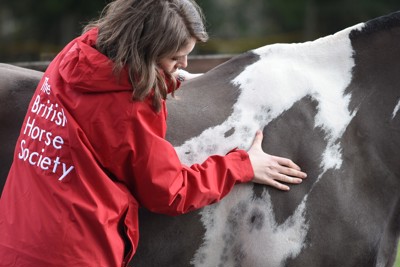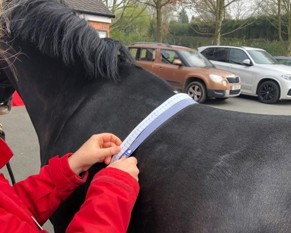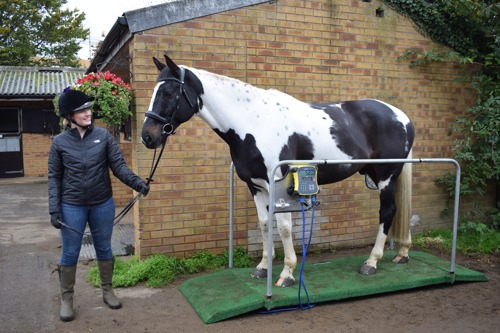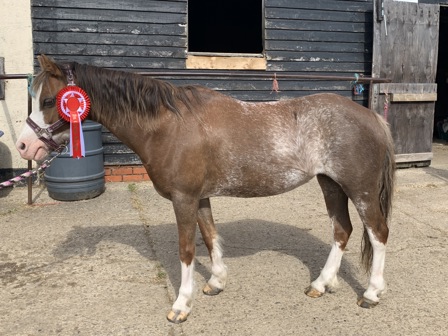What is a Horse Health Day?
The BHS Horse Care & Welfare team is available to visit any livery yard or riding school (BHS Approved or non-approved), colleges or equestrian centres with our healthcare vehicle and weighbridge. The BHS team member will work directly with the owner or carer and their horse on an individual basis. The horse will be weighed using a weightape and then on the weighbridge.
We’ll work directly with owners/carers and practically demonstrate how to fat score their horse (also known as body condition scoring), so they can then continue to assess their horse with more confidence in the future. We provide tailored advice about weight management options and additional ongoing support is available to help with a horse’s targeted weight management plan.

We also run sessions at riding club and pony club camps to help educate and support the next generation, which can include presentations (if time allows) and fun interactive games such as ‘guess the weight of the pony’.
There’s no pressure on the day, and owners/carers are encouraged not to rush to get their horse to stand on the weighbridge. Horses will often stop and sniff the weighbridge, so we allow plenty of time for them to gain confidence at their own pace.

Horse owners are advised to wear appropriate PPE (riding hat and gloves) with the horse presented in a bridle for extra control if needed.
Disease prevention is hugely important, so we have strict equine biosecurity guidelines in place for all our events.
Why do we hold Horse Health Days?
Worryingly, in the UK up to 50% of horses are reported to be overweight or obese with this figure creeping up to 70% in some native pony breeds1. Most yards won’t have access to a weighbridge, so we want to offer this opportunity to as many horse owners/carers as possible.
Management nowadays means horses may often have access to quality grazing all year round and are exposed to milder winters with additional rugging and stabling. This can result in horses not having to use as much energy to keep warm, and if excess calories are being consumed, weight (and therefore fat) will begin to increase. Weight management can be a constant challenge and is a balancing act between providing the right diet, health care, exercise and management. Our team understands how difficult weight management can be - we never judge and are here to help.
Horses carrying excess fat can be at an increased risk of health issues such as Equine Metabolic Syndrome (EMS), laminitis and arthritis which can be detrimental to their welfare.

In Great Shape
Maintaining your horse at a healthy fat score can be difficult, and we understand the challenges many owners/carers face. To acknowledge those horses assessed at a healthy fat score of 2.5-3 out of 5, the team will award an ‘In Great Shape’ rosette.
At the end of each month, all horses who have received a rosette will then be considered for our ‘Star of the Month’ award.

Our 2024 rosettes have kindly been sponsored by SEIB Insurance Brokers
Why is it important to know your horse's weight?
- Forage – most horses can maintain their weight by eating 2-2.5% of their body weight in forage per day. You should seek expert advice from your vet or equine nutritionist if your horse needs to lose or gain weight.
- Medication or worming dose – dosage is calculated on your horse’s weight.
- Trailer/Lorry loads – do you know the legal maximum weight limit for your trailer or horse box? Do you know how much your horse and all your equipment weighs?
Booking your visit
If you feel your yard would benefit from our Horse Health Days and would like further information, please contact: welfare@bhs.org.uk or call 02476 840517. The days are a free service, but to help us continue our charitable work we do ask owners/carers to consider giving a donation.
Reference
1) Rendle, D. et al., (2018) Equine obesity: current perspectives UK-Vet Equine. 2(5


